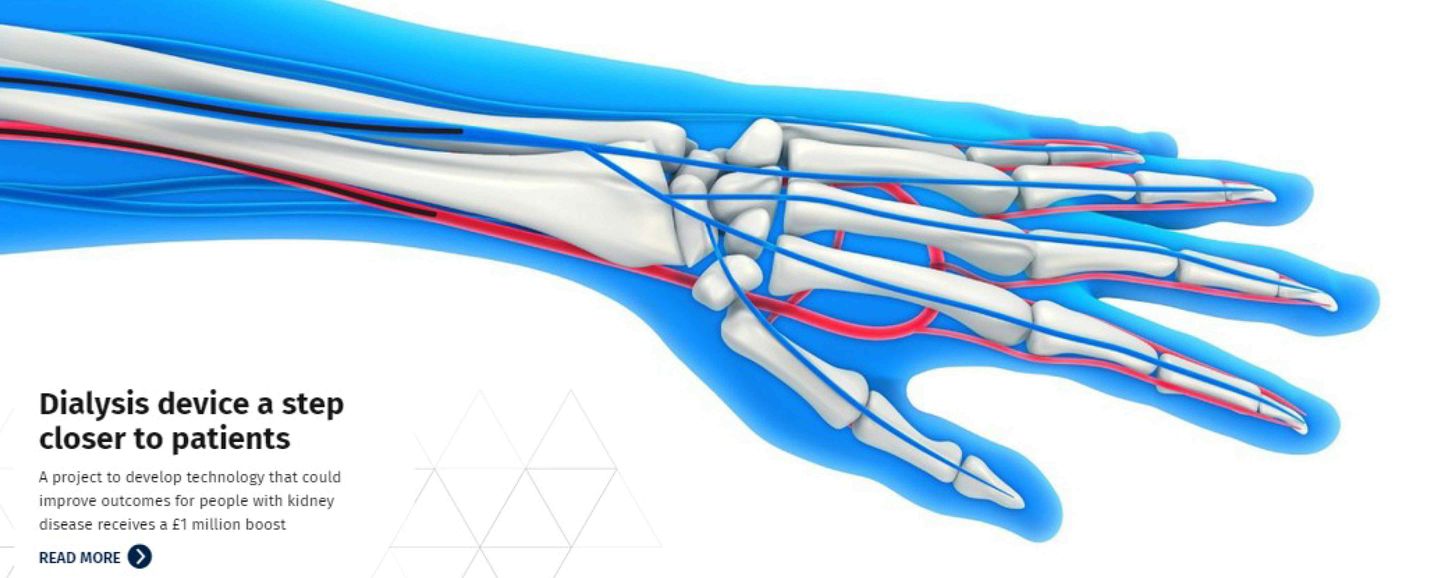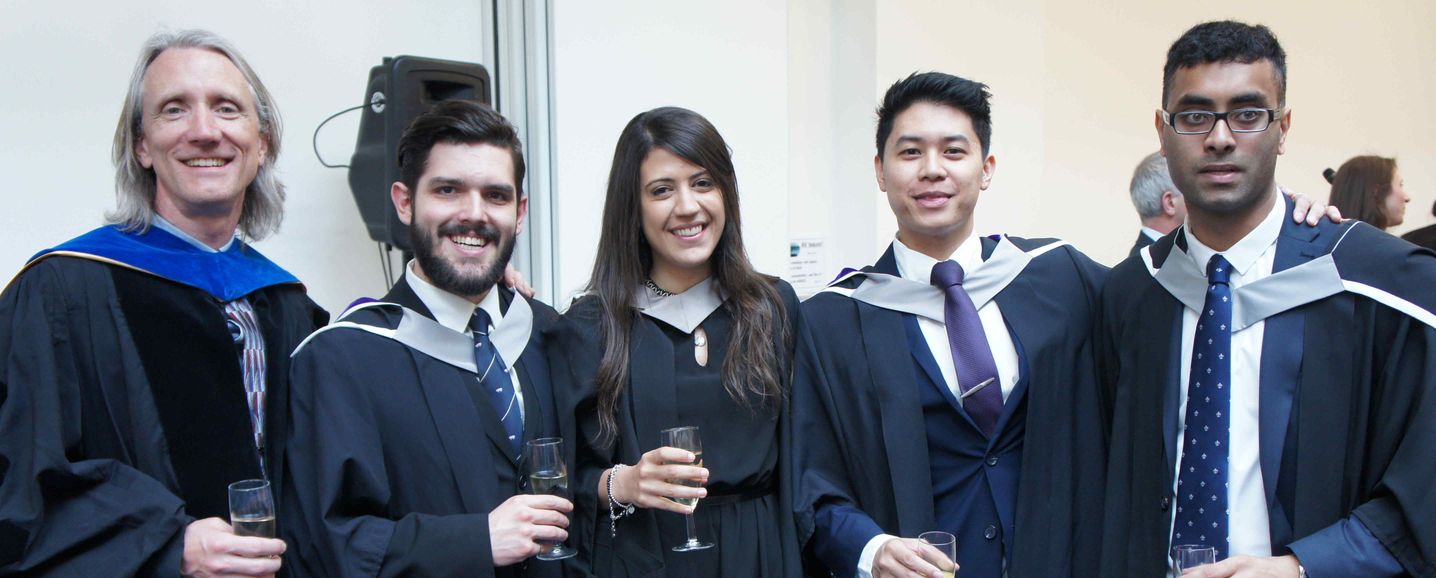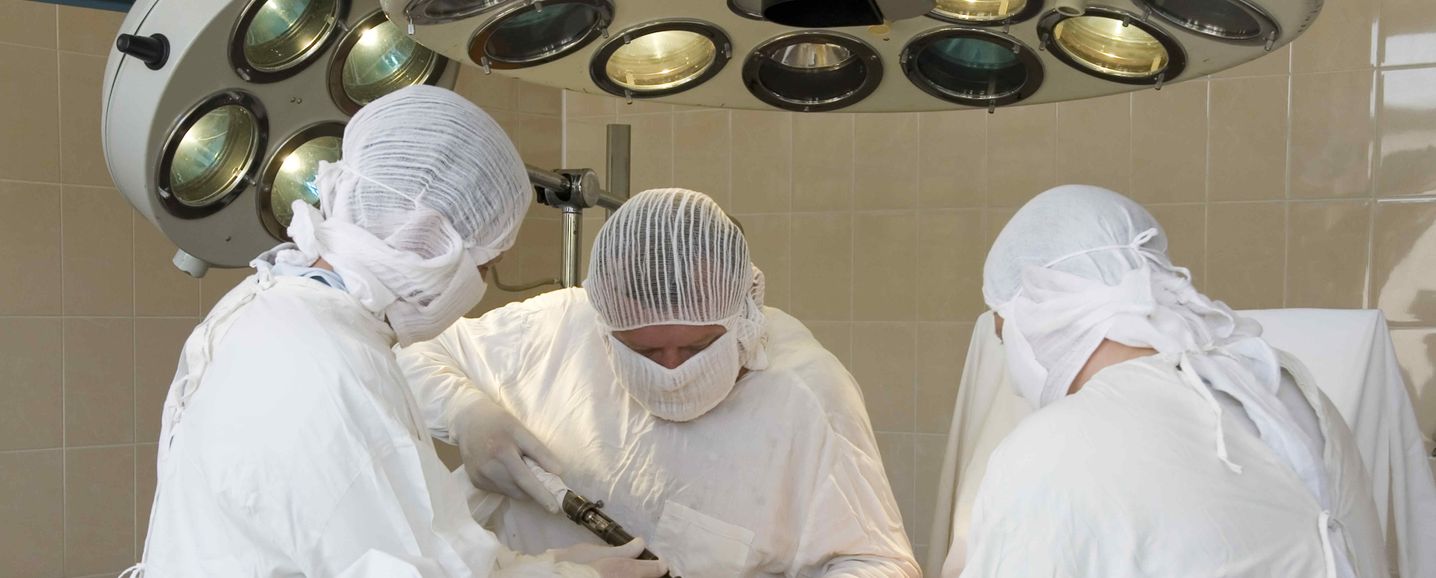The MRes in Medical Device Design and Entrepreneurship will prepare you for an innovative research career in Bioengineering and aims to:
- produce postgraduates with a sound understanding and knowledge of the intricate and unique field of medical device development, from concept to business planning and market emergence
- provide management and communication skills training, including problem definition, project design, decision processes, teamwork, written and oral reports, proposals and publications
- develop research and analytical skills related to bioengineering using a multidisciplinary approach develop oral and written scientific and business presentation skills
- provide a solid foundation for those intending to go into industry or on to study for a PhD
The MRes is 12-months full-time, and involves only a small amount of formal teaching. In addition to a module providing specific training in medical device entrepreneurship, a selection of "short workshop" format modules is provided, primarily in the first term, to address key technical training requirements common to many areas of bioengineering.
Students will also follow one, possibly two, elective courses from the MBA and MSc Innovation, Entrepreneurship and Management programmes in the Imperial Business School. The bulk of the training will take place in year-long group projects aimed at developing an engineering developmental and startup business plan around a medical device concept.
Students are required to attend departmental seminars, as well as a selection of other seminars throughout College, and may also attend lectures from the MSc Biomedical Engineering programme.
Imperial College London works closely with employers and industry, including Industrial Advisory Panels to design Master’s courses which provide graduates with technical knowledge, expertise and transferable skills and to encourage students to take internships and placements.
All Master's courses are designed with employer needs in mind with some Master’s courses accredited by Professional, Statutory and Regulatory Bodies. Most Master’s courses offer an opportunity to carry out research projects in industry.
Extra information
Students may be recruited either from the physical sciences, engineering, or the biological sciences, as the programme structure we propose is sufficiently flexible to be individually tailored to the student’s background and training needs. The course will be laid out as follows:
Students choose from the first six short taught modules listed in the table below, which can be in either term 1 or 2, but heavily weighted towards term 1. (T=term, C=compulsory). Items marked with an asterisk are assessed only as Pass/Fail, i.e. they do not contribute to the final mark, given that they are passed. All students undertake a research project.
Programme structure
Taught element (worth 25% of the degree)
You will take the following core modules:
- Medical device entrepreneurship (T1, C)
- Statistics and data analysis (T1,C)*
- Computational methods for bioengineering (T1,C)
- Seminars (T1,T2,C)
Plus two or more optional modules from a selection including:
- Bioengineering courses from MSc in Biomedical Engineering or MRes in Bioengineering (T2)*
- Business school courses (T2a or T2b)*
Research element (worth 75% of the degree)
- You will also complete a research project.
The MBA courses are taught either January-March or April-June (T2a, T2b), while the MSc courses are taught January-March.
--tojpeg_1444313165786_x4.jpg)
--tojpeg_1444313217344_x4.jpg)


